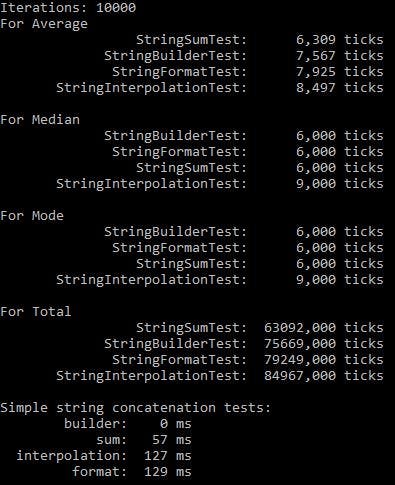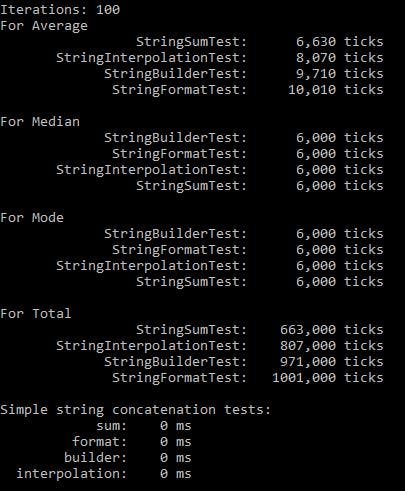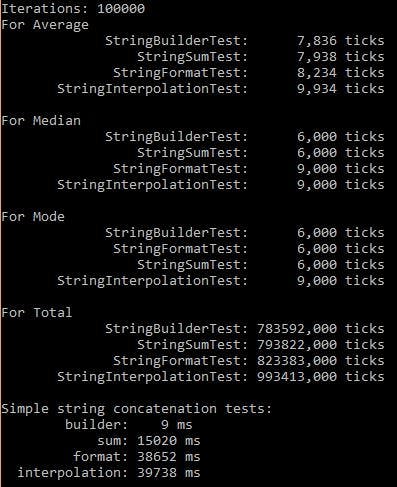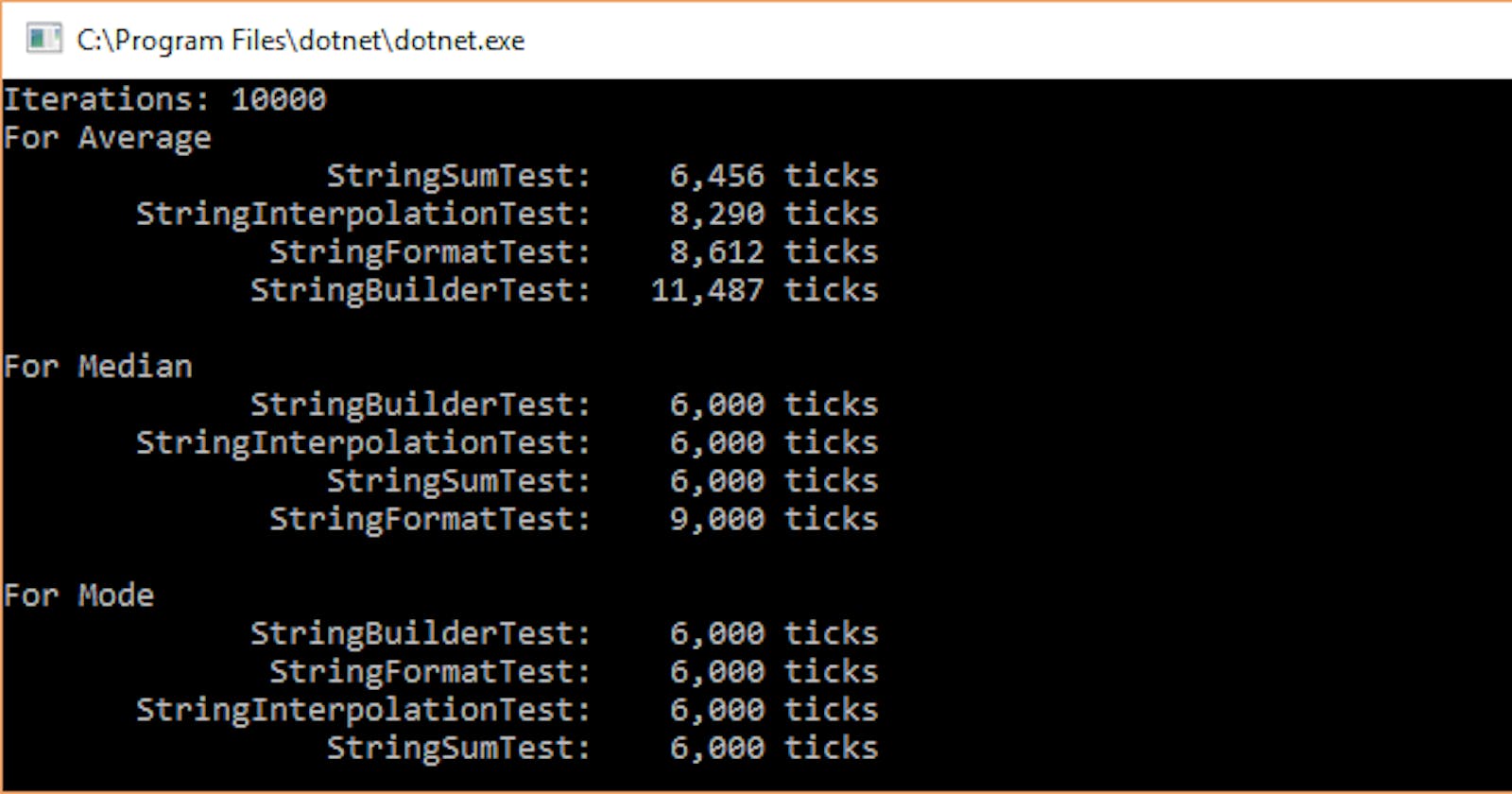A year, maybe two ago, I saw a talk of a colleague about performance. He compared await/async with more traditional threading options, demonstrated how slow reflection is and compared the three string concatenation options: sum notation, string.Format() and StringBuilder. Now that string interpolation is here, I was curious how fast is it compared to the other methods.
This is not a definitive test environment because I executed these tests only on my local machine. It's an i5 that's 5 years old with 8GB DDR3 RAM. So it's not a very fast machine, but I can't complain. If you want to run these tests yourself you can get all the code from GitHub. If you have tips to improve the precision, they are always welcome through mail or twitter.
For each test (sum, format, builder, interpolation), I wrote 4 statistics expressed in ticks to measure the speed: average, median, mode/modal and total. After those tests, I ran a simple for loop and appended a number to a string using the different string options. It looked like this:

Most values from my complex tests lie very close together. Which means that on average, the concatenation of 2 strings is overall very fast. First I was looking at the milliseconds that were elapsed, but that showed 0 ms each time. I decided to display the ticks that had passed instead. The interpolation is the slowest on average when concatenating 2 strings. This is including instantiating a new StringBuilder on each pass through my complex test.
After I built those complex tests, I remembered that a simple test sometimes gives the best overview. I added string concatenation that adds numbers to a string using the various methods. The iterations in these simple tests are the same as in the complex tests. The results are at the bottom 'Simple string concatenation tests:'.
The StringBuilder is the fastest way if I would want to concatenate a lot of strings together. The total run time is less than a millisecond. Second place is for the sum notation.
The last place is, in my opinion, a shared place. The interpolation and format are so close together that it doesn't make a lot of difference. I ran the test a couple more times and the numbers are almost always less than 5 milliseconds apart. I was not surprised as these options both use more complex logic to concatenate strings.
When I run the test with only 100 iterations I see that the averages and modes stay the same, but the simple tests decrease immensely.

The larger the number of iterations, the more the simple tests split up into two sides: the faster StringBuilder and the summation method against the much slower string interpolation and format.

I can conclude that for a few concatenations, there is almost no difference between all the options. It's only with large iterations (10.000 and above) that StringBuilder and, to lesser extent, the summation have a big impact on performance.

